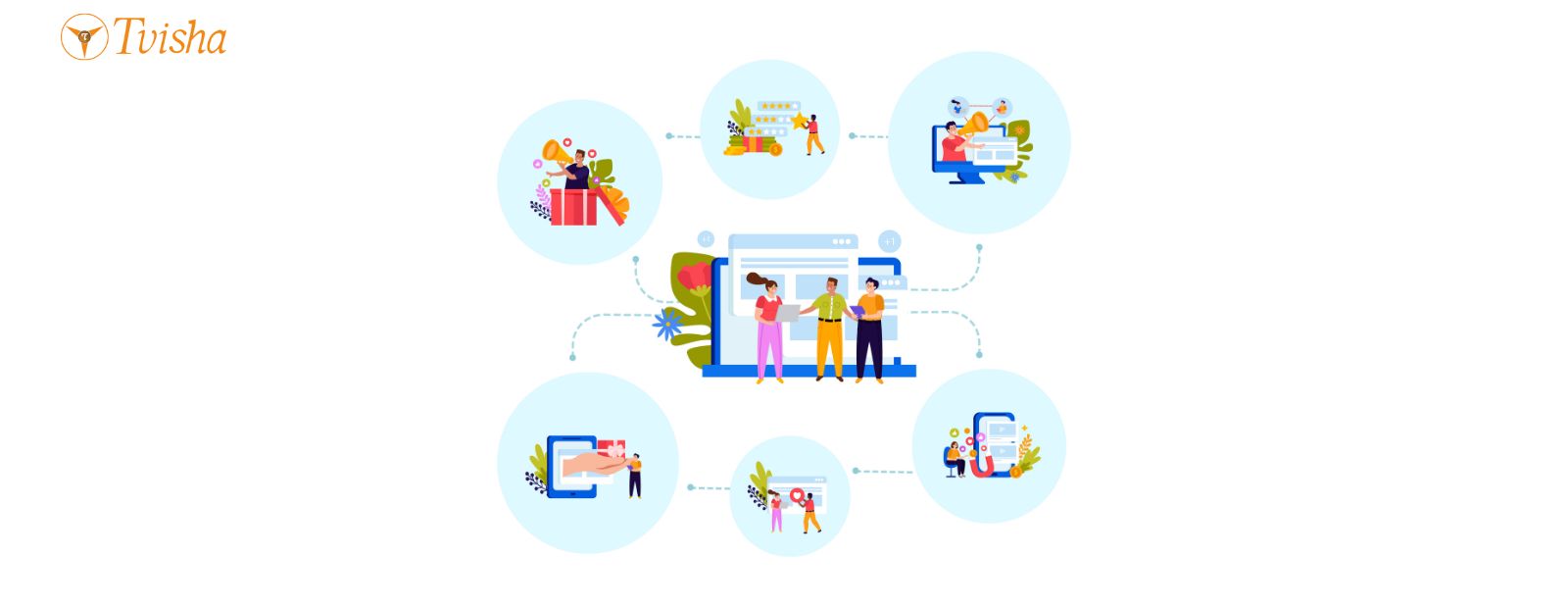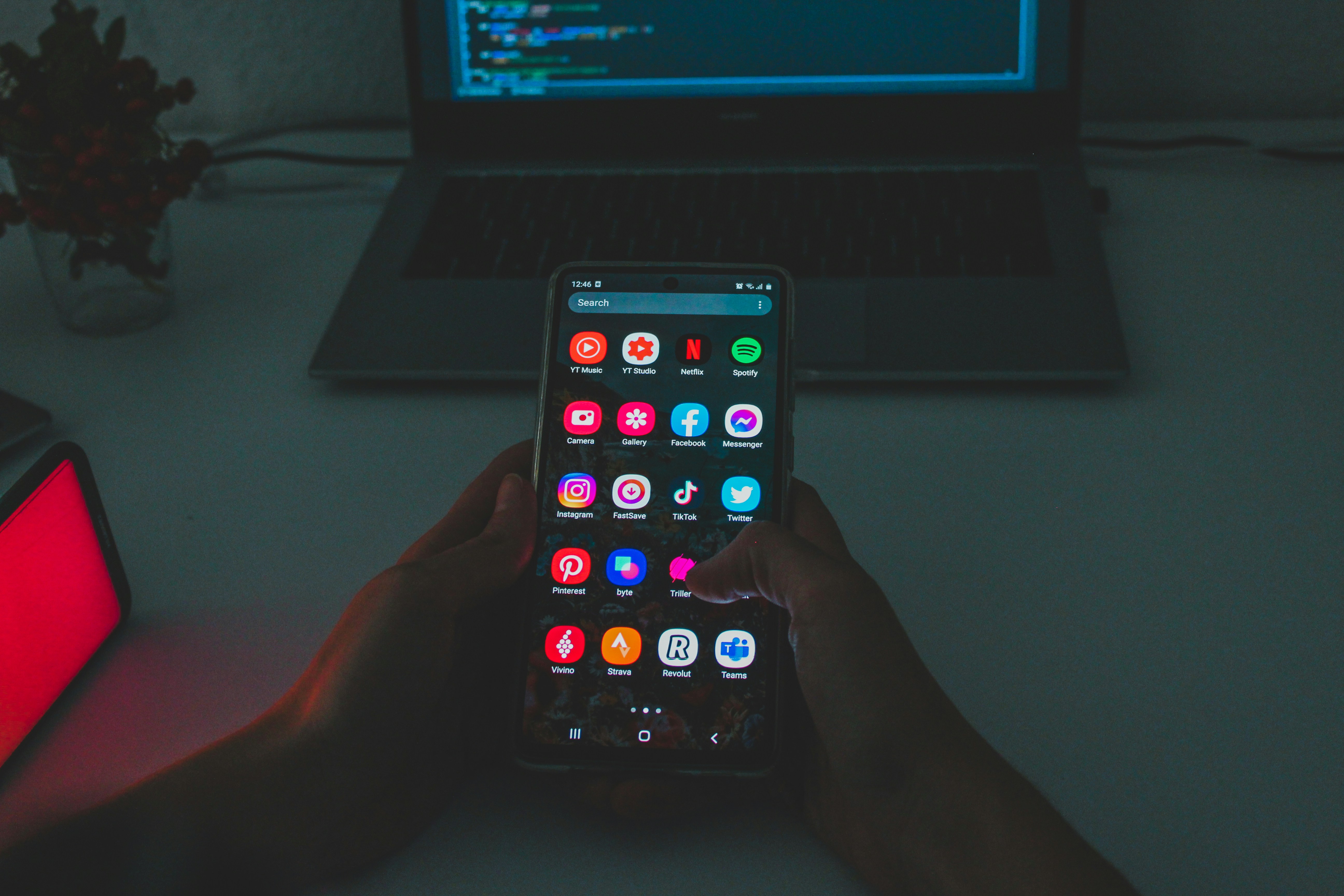
The Role of Ethics in Today’s App Development Landscape
In today’s fast-paced digital world, app development is more than just coding and creativity. It’s a powerful force shaping how people live, work, and interact.
According to Statista, the global revenue in the application development software market is projected to reach USD 195.77 billion in 2025. With a consistent annual growth rate of 5.09%, this market is expected to hit an impressive USD 250.91 billion by 2030.
As this booming industry continues to expand, its influence on society grows significantly. With that influence comes a growing responsibility to ensure that apps are built not only for functionality and profit but also with ethical integrity
From protecting user data and designing for inclusivity to preventing addiction, ethical considerations are now at the forefront of app development. Developers, companies, and platforms must navigate complex decisions that balance innovation with accountability.
This article explores the key ethical challenges facing today’s app developers and how responsible design practices can help shape a safer digital future.
Data Privacy and User Consent in the Digital Age
In today’s app-driven world, ethical development begins with the responsible handling of user data. Every interaction within an app, whether a tap, swipe, or voice command, generates valuable information. While this data can be used to enhance functionality and target services, it also raises serious concerns about privacy and informed consent.
According to Forbes, successful strategies for balancing privacy and functionality include:
- Data minimization and encryption: Collect only necessary data and use encryption to protect user identities.
- Transparent privacy policies: Clearly state what data is collected, how it's used, and security measures in plain language.
- User consent and control: Obtain explicit opt-in consent and empower users to view, edit, or delete their data.
- Robust security measures: Employ industry-standard encryption, secure protocols, and regular audits.
- Privacy-by-design approach: Integrate privacy considerations proactively into every stage of app development.
Combating Addictive Design Patterns for Digital Wellness
One of the most pressing ethical concerns in app development is the intentional use of addictive design patterns. These include infinite scrolling, variable reward systems, social validation triggers, and fear-of-missing-out (FOMO) mechanisms. While effective at driving user retention, they often compromise mental well-being and digital balance.
Video game addiction is a particularly alarming outcome of such practices. Many mobile games incorporate loot boxes, daily reward systems, and pay-to-win models that mimic gambling behaviors. These mechanics have raised serious concerns, especially among minors and vulnerable users.
According to TorHoerman Law, major companies in the video game industry are now facing lawsuits for allegedly designing their games to be intentionally addictive. Plaintiffs argue that these games failed to provide adequate warnings about their potentially harmful effects.
The video game addiction lawsuit has sparked a broader conversation about ethical design in digital entertainment. It highlights the responsibility developers hold in balancing engagement with user well-being and the potential legal consequences of neglecting that responsibility.
In response, ethical developers are integrating tools such as spending limits, gameplay time alerts, natural stopping points, and parental controls. The wider app development community is also embracing digital wellness by offering features like screen time tracking, focus modes, and usage dashboards.
Algorithmic Bias and Fair Representation
As apps increasingly depend on AI to personalize user experiences and automate decisions, algorithmic bias has emerged as a serious ethical concern. These systems can unintentionally reinforce societal inequalities, producing biased outcomes in areas like hiring, finance, and even online dating.
Ethical app development demands conscious efforts to identify and mitigate this bias through diverse testing and inclusive dataset curation.
According to DatingNews.com, a recent study highlights how dating app algorithms often undervalue Black female users, leading to lower visibility and engagement. Through in-depth interviews, participants described how racism, biased beauty standards, and microaggressions shaped their online dating experiences.
One user shared that being a Black woman significantly affected how often she appeared in matches. This suggests the algorithms failed to represent her desirability fairly.
Addressing these concerns goes beyond technical fixes. It requires developers to collaborate with ethicists and sociologists to embed fairness, inclusion, and accountability into the design of algorithm-driven apps.
The Ethics of Accessibility and Inclusion
Ethical app development also means creating digital products that are truly inclusive and accessible to all users. This includes designing interfaces that support diverse needs, such as users with disabilities and individuals from varied cultural backgrounds. Accessibility is not just a technical checkbox but a moral responsibility to ensure no one is excluded from the digital world.
Developers can follow the Web Content Accessibility Guidelines (WCAG), a globally recognized framework for improving digital accessibility. WCAG outlines how to make websites and apps accessible to people with impairments related to:
- Vision – including blind, partially sighted, or color-blind users
- Hearing – such as those who are deaf or hard of hearing
- Mobility – users who have difficulty using a mouse or keyboard
- Thinking and understanding – including individuals with dyslexia, autism, or learning difficulties
Frequently Asked Questions
How can developers balance user engagement with ethical considerations?
Developers can balance user engagement with ethics by designing transparent features, avoiding manipulative tactics, and prioritizing user well-being. This includes offering clear consent options, limiting addictive design patterns, and integrating digital wellness tools.
What makes protecting privacy difficult in the digital era?
Protecting privacy in the digital era is difficult due to widespread data collection, lack of user awareness, and complex consent policies. Constant tracking by apps, targeted advertising, and weak cybersecurity measures further compromise personal data. Additionally, evolving technologies like AI and IoT often outpace existing privacy regulations and protections.
Why is digital addiction a problem?
Digital addiction is a problem because it disrupts mental health, sleep patterns, and real-world relationships. It can lead to decreased productivity, increased anxiety, and reduced attention spans. Apps designed to maximize engagement often exploit psychological vulnerabilities, making it difficult for users to regulate screen time and maintain a balanced lifestyle.
The role of ethics in app development has evolved from a peripheral concern to a central pillar of responsible technology creation. Developers today bear an increasing responsibility to consider the broader implications of their work beyond mere functionality and user engagement.
The challenges are complex and multifaceted, ranging from data privacy and addictive design patterns to algorithmic bias and digital wellness. However, growing awareness within the development community suggests ethical considerations will become more integrated into app development.

.jpg)














 Whatsapp
Whatsapp
 Email
Email


